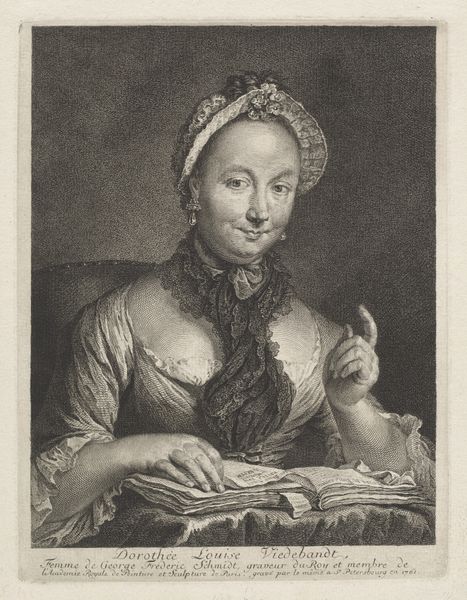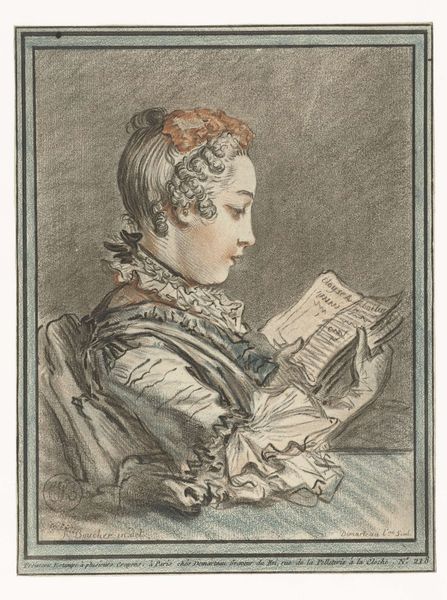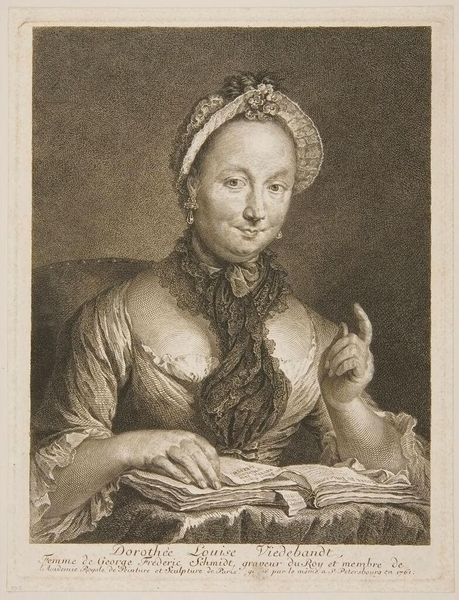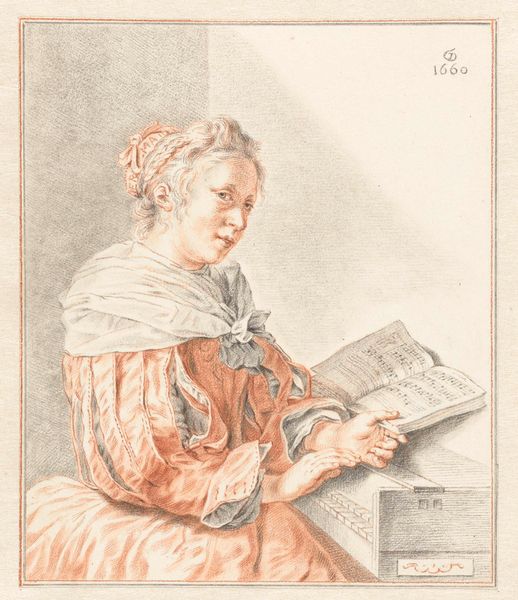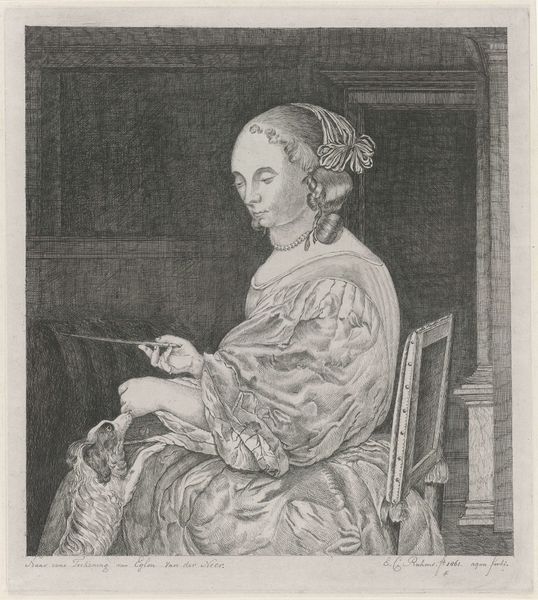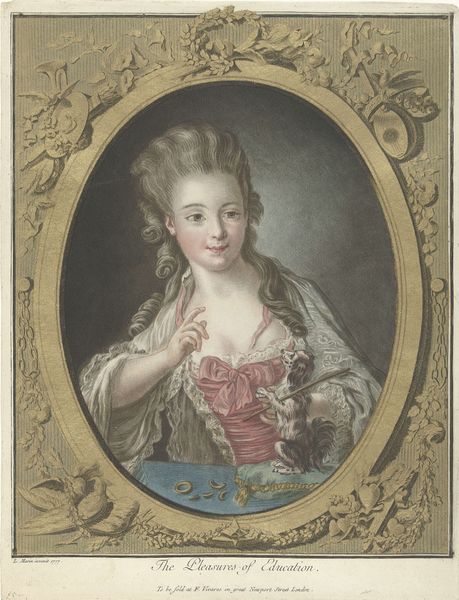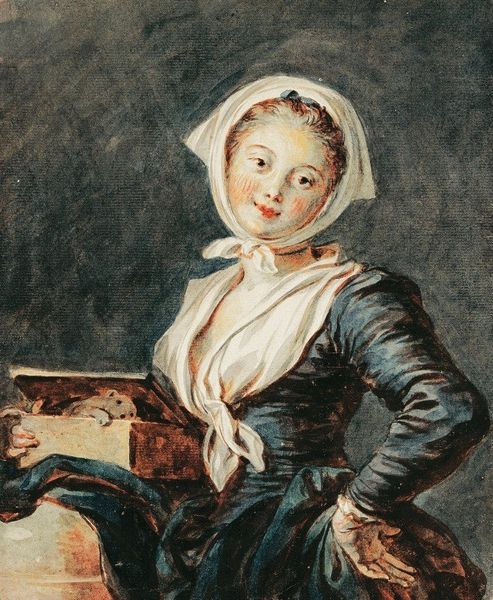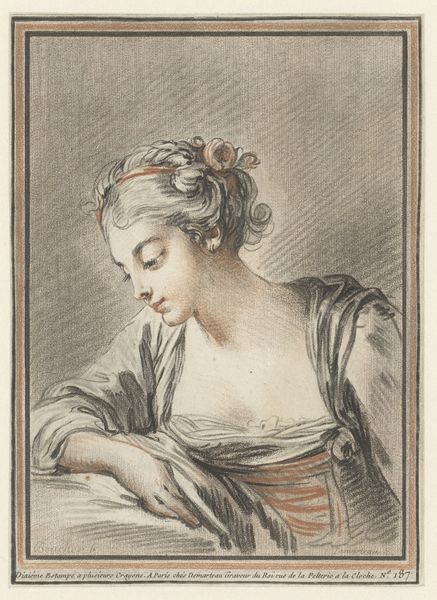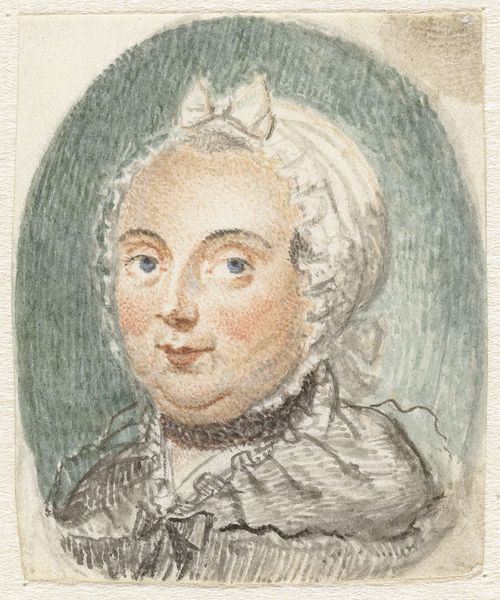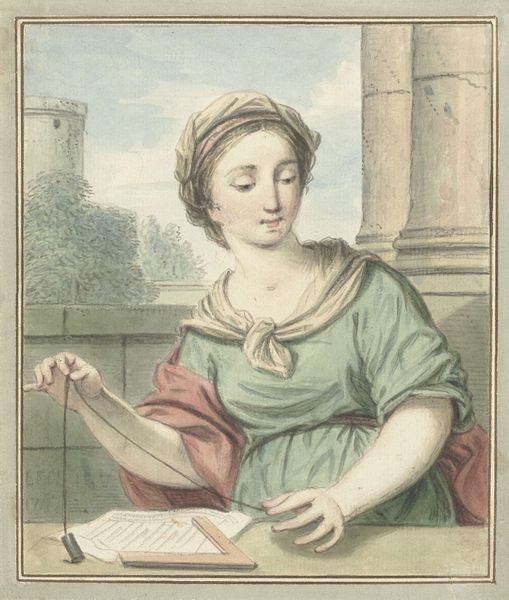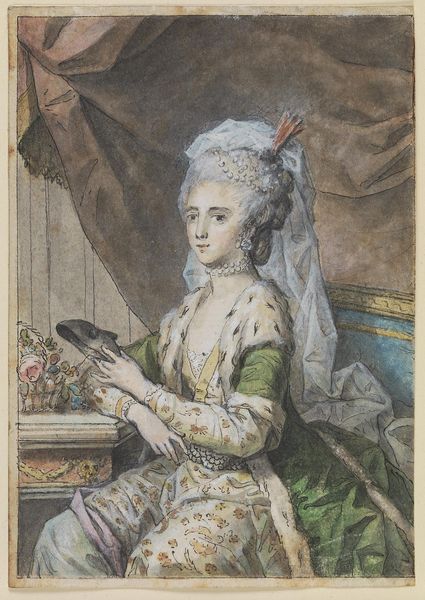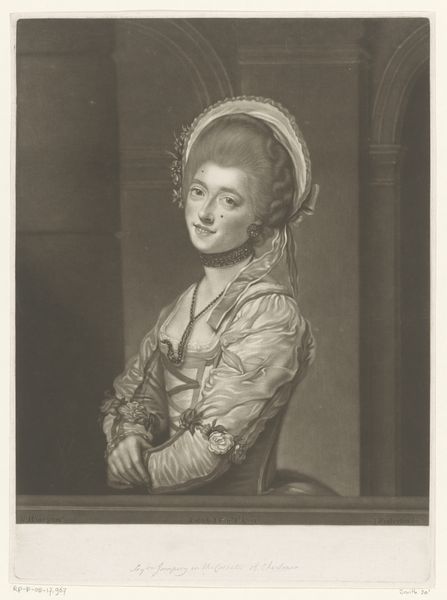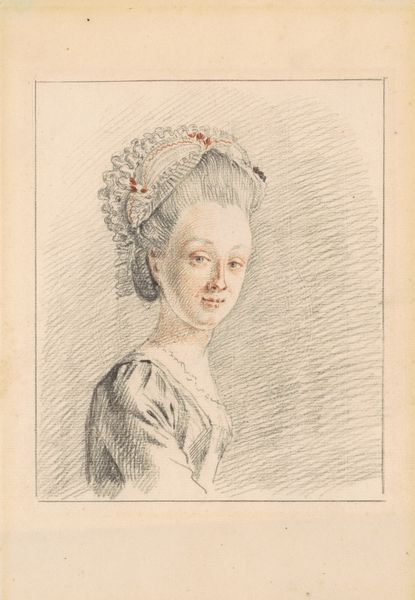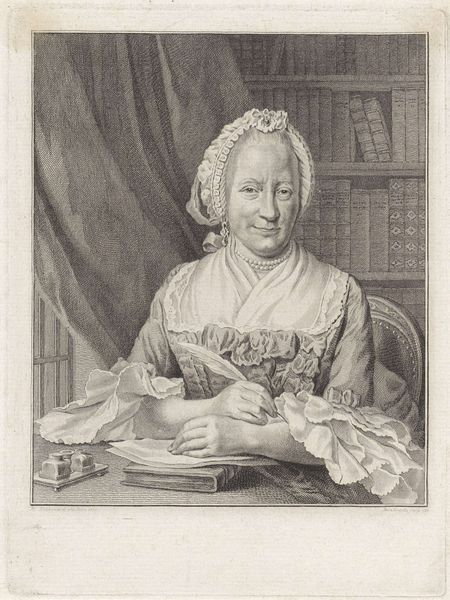
drawing, paper, pencil
#
portrait
#
drawing
#
paper
#
pencil
#
portrait drawing
#
northern-renaissance
#
portrait art
#
rococo
Dimensions: sheet: 21.2 x 17.4 cm (8 3/8 x 6 7/8 in.)
Copyright: National Gallery of Art: CC0 1.0
Georg Friedrich Schmidt made this portrait of his wife around 1762, using pastel and charcoal on paper. These are interesting materials because they occupy a middle ground. Unlike oil paint, with its high status and technical demands, pastels and charcoal are accessible and immediate. Note how Schmidt makes full use of the paper's texture, allowing it to show through the pastel layers, creating a sense of immediacy. It feels almost like a sketch, yet the detail in the face and clothing suggests otherwise. Pastel is pure pigment bound into a stick, allowing for vibrant colors and soft, velvety textures. Look at the lace around her neck, the subtle blush on her cheeks. The choice of these materials gives the portrait an intimate feel, more like a study than a formal commission. By focusing on the inherent qualities of the pastel, paper, and charcoal, Schmidt elevates what might have been a simple domestic scene into a work of art. It blurs the lines between personal expression and the skilled application of materials, reminding us that even the most everyday materials can yield extraordinary results.
Comments
No comments
Be the first to comment and join the conversation on the ultimate creative platform.
